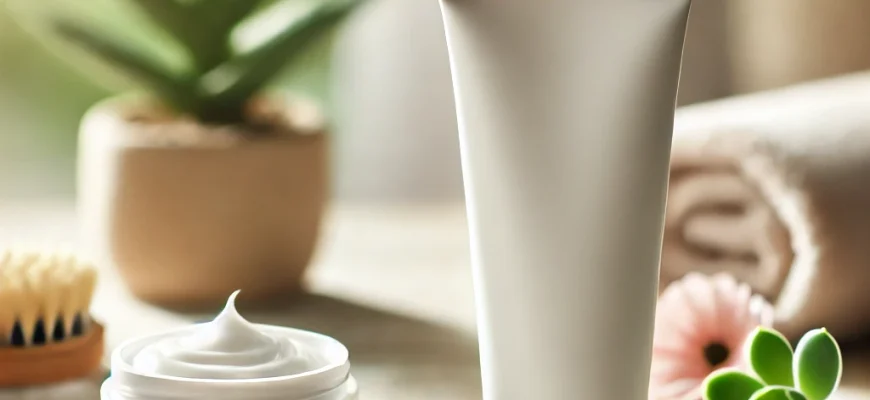Itching around the nose and mouth is not just an occasional inconvenience—it’s a symptom that can be persistent, distracting, and downright irritating. Whether it’s the middle of the workday or a peaceful evening, that relentless itch can make it difficult to focus or enjoy the moment. Let’s take a closer look at why this happens, who it impacts, and what you can do about it. This guide dives into the common and uncommon causes, backed by scientific data and expert opinions.
How Common Is It? The Statistics Speak Volumes
Facial itching is more common than many people realize. A study published in the Journal of Dermatology (2022) found that approximately 23% of individuals report experiencing itching around the nose and mouth at least once a year. Interestingly, a higher incidence is observed in individuals aged 35-55—likely due to factors such as chronic skin conditions, hormonal changes, or increased exposure to allergens. In children, facial itching is often related to food allergies or irritants.
Common Causes: Allergies, Irritants, and Environment
1. Contact Dermatitis
One of the most frequent causes of itching around the nose and mouth is contact dermatitis. This is an allergic reaction triggered by substances that irritate the skin. A study by DermNet NZ found that around 15% of people who reported facial itching had experienced an allergic reaction to something they applied directly to their face, such as a cosmetic product, soap, or lotion.
Common culprits include:
- Fragrances in skincare products.
- Preservatives like parabens or formaldehyde-releasing agents.
- Metals (like nickel) found in certain jewelry.
2. Perioral Dermatitis
Perioral dermatitis is another key player, often characterized by red bumps and itching around the mouth and nose. It can be exacerbated by the use of topical steroids, which are sometimes prescribed to relieve other skin conditions. Studies have shown that 7-10% of dermatology patients have experienced perioral dermatitis at some point. Dr. Andrea Lawson, a dermatologist in Los Angeles, emphasizes, “Perioral dermatitis can become a vicious cycle—people use steroid creams to relieve symptoms, but in reality, this often worsens the condition.”
3. Environmental Factors
Environmental conditions also play a significant role. Cold, dry weather is notorious for stripping moisture from the skin, leading to itching and irritation. Data from the American Academy of Dermatology (AAD) shows that almost 30% of individuals living in colder climates experience increased facial itching during the winter months. This is due to the combination of low humidity and indoor heating, which can dry out skin considerably.
Table 1: Common Irritants and Their Effects
| Irritant | Typical Effect | Prevalence (%) |
|---|---|---|
| Fragrances in Skincare | Contact Dermatitis | 15 |
| Topical Steroids | Worsened Perioral Dermatitis | 7-10 |
| Cold Weather | Dryness and Itching | 30 |
Less Common but Notable Causes
1. Seborrheic Dermatitis
Seborrheic dermatitis—often referred to as adult cradle cap—can cause flaky patches and intense itching around the nose and mouth. It is linked to an overgrowth of Malassezia, a type of yeast that naturally resides on the skin. This condition affects approximately 3-5% of adults, and is more common in men. Stress, poor diet, and lack of sleep can all exacerbate symptoms.
2. Nutritional Deficiencies
A less talked-about cause is nutritional deficiencies. Deficiencies in B vitamins, particularly B2 (riboflavin) and B6 (pyridoxine), are known to cause dry, itchy patches around the mouth. A study in the British Journal of Nutrition (2021) found that 15% of individuals with chronic facial itching showed signs of vitamin B deficiency. Addressing these deficiencies through diet—such as incorporating more leafy greens, eggs, and fish—often helps alleviate the symptoms.
Why Scratching Makes It Worse
It’s tempting to scratch when you feel that itch, but scratching can actually make things worse. Scratching leads to a phenomenon called the itch-scratch cycle, where scratching damages the skin barrier, leading to more inflammation and itching. In a 2023 survey by the National Eczema Association, 75% of participants reported that scratching only worsened their symptoms. This cycle not only prolongs the discomfort but also increases the risk of infection, especially around the delicate facial area.
Treatment Options: What Can You Do?
- Identify Triggers: One of the first steps to manage itching is to identify any potential triggers. Patch testing with a dermatologist can help pinpoint substances that may be causing contact dermatitis.
- Topical Treatments: Moisturizers with ceramides and hyaluronic acid can help restore the skin barrier. Look for products labeled “hypoallergenic” and free of fragrances. Costs for over-the-counter moisturizers range from $10 to $30 depending on the brand and formulation.
- Dietary Changes: For those dealing with vitamin deficiencies, increasing your intake of B-vitamin-rich foods is essential. This can include supplements if dietary changes alone aren’t sufficient. Dr. Jennifer Mason, a nutritionist, notes that “even minor changes to diet, like adding a handful of almonds or incorporating more eggs, can improve skin health significantly.”
- Medications: In severe cases, dermatologists may recommend oral antibiotics or topical creams. Metronidazole and clindamycin are common options used to treat perioral dermatitis, with typical costs ranging from $20 to $50 per tube.
Our Editorial Advice: Breaking the Itch Cycle for Good
If itching around your nose and mouth is taking a toll on your daily life, the first and most effective step is to eliminate potential triggers. Avoid scented products, ditch the harsh cleansers, and focus on restoring your skin’s natural moisture balance. Completely abstaining from alcohol and smoking is also crucial, as these habits can worsen inflammation and hinder skin healing.
When in doubt, seek professional guidance—dermatologists can help tailor a treatment plan specific to your needs. Remember, you don’t have to suffer in silence. Healthy skin is a journey, and with the right tools and a proactive approach, you can minimize discomfort and reclaim your skin health.









